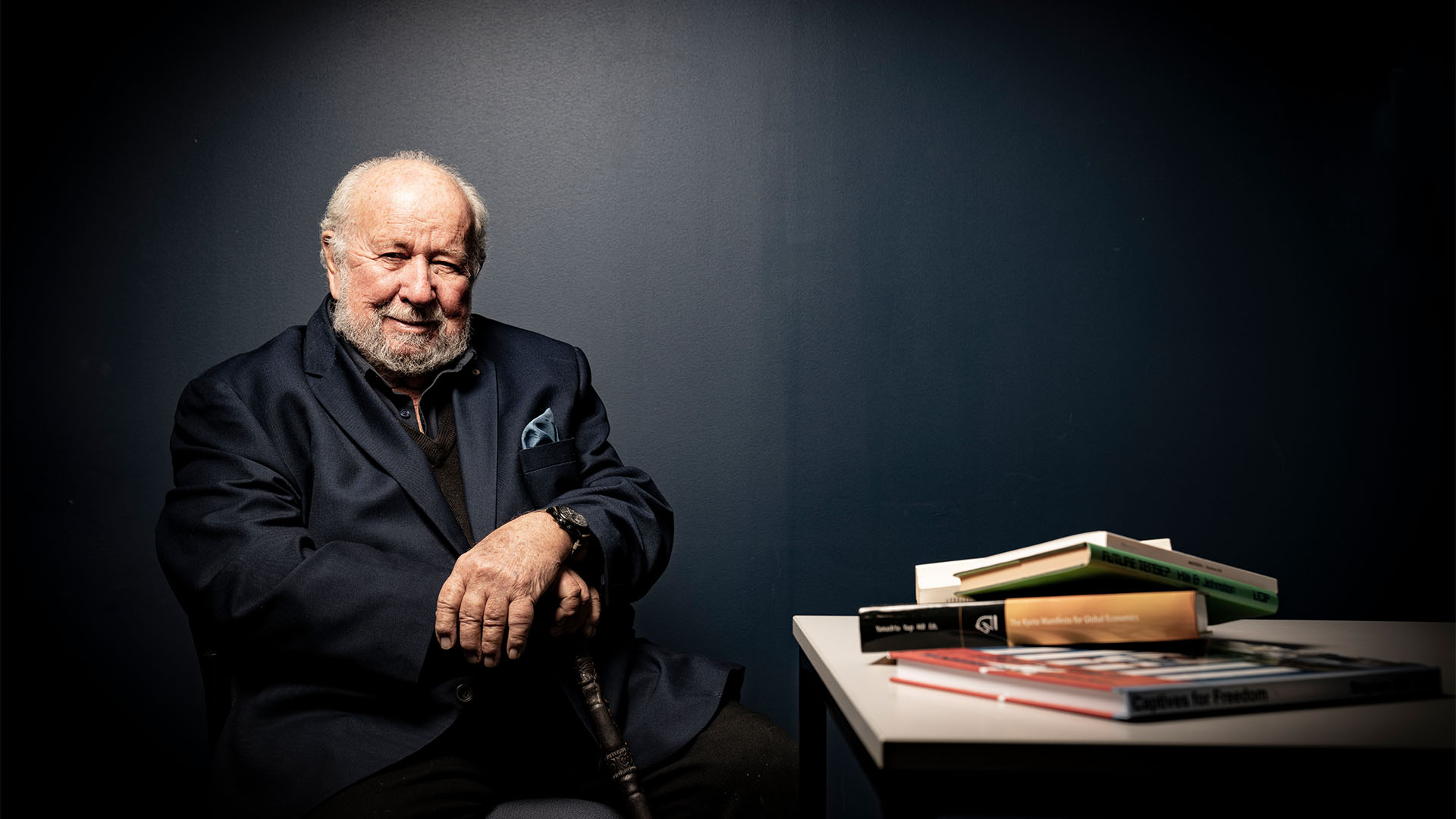August 22, 2022
New book launch: the kindness revolution will save the world
Stephen Hill’s book is both scientific and spiritual, as it presents his vision for post-pandemic economics based on humanity and care
What would happen if we re-framed the current economics dominated by self-interest to base all human relations on mindfulness, care, mutual benefit and trust?
In his newest book, The Kyoto Post-COVID Manifesto for Global Economics: Confronting Our Shattered Society (2022), the University of Wollongong (UOW) Emeritus Professor Stephen Hill AM, exposes the failures of a global economic regime and explores how shifting the paradigm from self-interest to humanity and cooperation can change our lives on all fronts: from sustainability, work arrangements, economic prosperity to global mental health.
Dr Hugh Mackay AO, a renowned social researcher and bestselling author of 19 books, including highly acclaimed Australia Reimagined, welcomed Professor Hill’s work with much excitement.
“This book is a profoundly original scientific and practical work. It calls us to rediscover our sense of humanity and express it by harnessing the power of local communities. It’s revolutionary, and revolutions like this never start at the top. Through Professor Hill’s storytelling, we’re invited to personal reflection and personal action at the grassroots level,” Dr Mackay said.
Unusually for a book on economics, it acknowledges the centrality of kindness to the human project – because according to the authors, human history is not about the survival of the fittest but the survival of the kindest, as our collective wellbeing doesn’t stem from aggressive individualistic progress but from harmony, inclusivity and cohesion.
Most importantly, Professor Hill shows that ‘the green shoots of transformation’ have already started emerging. For example, many societies now consider happiness and welfare far more important than economic growth, with key world economists supporting the idea of sharing economy. Similarly, numerous examples of modern businesses incorporate broader social values rather than just monetisation into their strategies.
In Professor Hill’s words, even the COVID-19 pandemic has had a positive side. It has shaken up world society and the global economy, leaving behind what could be decades of impact.
“The basic message it’s given us is strong – how now more than ever, we need to focus on a future ruled by our humanity rather than self-interest. And this is what my book strives to offer – the inspiration and practice to change out of an enormously unequal, fragmented global society,” Professor Hill said.
A significant impact of COVID-19, and an immediate opportunity for social change, has been the rapid development of computer-based communications and a change in home-office work arrangements. These changes have encouraged some leading organisations to revisit the human relations values that underscore productive employment.
One of the book’s unique ideas is ‘the Circle of Wholeness’, a poignant concept explaining that each person is only whole when connected into overall harmony with others as in a circle. Caring and knowledge are held by the circle’s central human focal point: integrity and trust.
The book was written in collaboration with Japan’s Center for the Creative Economy in Kyoto.
ABOUT THE AUTHOR
Stephen Hill is an Emeritus Professor at the University of Wollongong (UOW). His career covers multiple disciplines, supporting an overall concern to make knowledge work for peoples’ emancipation and welfare.
Immediately before retirement, Professor Hill was United Nations Regional Director for Science for Asia and the Pacific and, in parallel, Principal Director and Ambassador of UNESCO (the United Nations Educational, Scientific and Cultural Organisation) based in Indonesia. Before joining UNESCO, Professor Hill was Director of the Australian Research Council’s National Centre of Excellence and UOW’s Centre for Research Policy. At UOW, he spent 17 years as Foundation Professor of Sociology. Prior to that post, Professor Hill held Interdisciplinary Appointments in Chicago and Sussex, and was teaching Sociology at UNSW.
